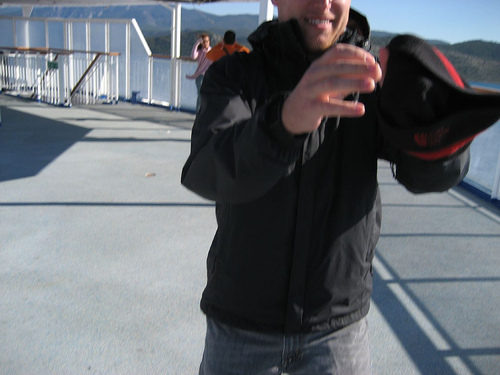...We hold these truths to be self-evident, that all men are created equal, that they are endowed by their Creator with certain unalienable Rights, that among these are Life, Liberty and the pursuit of Happiness--That to secure these rights, Governments are instituted among Men, deriving their just powers from the consent of the governed, that whenever any Form of Government becomes destructive of these ends, it is the Right of the People to alter or to abolish it, and to institute new Government, laying its foundation on such principles and organizing its powers in such form, as to them shall seem most likely to effect their Safety and Happiness... - The Declaration of Independence of the Thirteen Colonies, united States of America
I've been studying the story of Cain and Abel recently as part of a review of what it means to be created in the image of God, and I've noticed in particular the issue of human "rights." Genesis 4 shows us the disease of sin spreading on to the offspring of the first couple, and while the strain begins to mutate, it continues to show a basic structure. Like his parents, Cain was consumed with what he considered to be his right. They wanted equality with God as they were dissatisfied with merely being created in His image; Cain wanted to keep his first fruits, and this initial selfishness led him to later destroy another image bearer. Different desires led to different sins in the first family, but the motivation was the same. Later on, as "rights" ran rampant in the people of Noah's day - sin's various strains were many, but still all of the same original volition - to claim a "right."
Back to Cain. He and his brother both were in the employ of God's original calling to steward the soil and the animals upon it. But as they brought their sacrifices, Cain held back what he considered his right. Its interesting that we often minimize this original sin in the story in lieu of the gravity of the sin it later caused. Even more interesting is that God saw where the initial sin was leading, and He even pleaded directly with Cain to turn the train around before it was too late. But with his notion of what he could consider to be rightfully his already twisted, he continued to do whatever he wanted, namely acting his anger out upon the life of his brother. Cain's story was the first point in history that God actually cursed an image bearer. Cain did not value the image that Abel had been created in, and God's response was to directly curse Cain, even as he continued to bear God's image.
There's a problem with "rights" - it carries connotations of something that we hold ownership over or lay claim to. Something we deserve. Cain, like his parents, thought he deserved better. And we are no better: with so inaccurate a conception of what we actually deserve, our notion of "rights" causes us to devalue the image of God in many ways. We focus on the "rights" of the mother rather than on the image of God in the unborn human life. We fail to see the human dignity in the disabled and elderly and rather look to the "rights" of family members to do as they please with those who can't care for themselves. We even grant "rights" to those who in our day and age have murdered other image bearers, and civically fail to defend life by retributively punishing its takers.
I'm not saying the founding fathers were wrong in their wording. We are endowed with God's image and as such we have the basic privileges there unto pertaining. But perhaps that's just the way we should see them - as privileges, something not ours, but graciously granted to us. When we're freed from "rights" based thinking, we are able to respect more deeply the image that we are created in and restore value to each life so created.
Thomas Jefferson was so convicted that the pursuit of happiness was an inalienable human right that he wrote it into the Declaration of Independence and called it a self-evident truth. But Christians have this to add: those who pursue happiness never find it. Because joy and peace are extremely elusive, happiness is a will-o'-the-wisp, a phantom, and even if we reach out our hand to grasp it, it vanishes into thin air. God gives joy and peace not to those who pursue them but to those who pursue Him and strive to love. Joy and peace are found in loving and nowhere else. -- John Stott















1 comment:
I'm in general agreement with you about hesitating to speak of rights, because often people do think of them as what we're entitled to in terms of deservingness. I don't think that's the only way people speak of rights, though. Sometimes people just mean that something is morally relevant. If it's at least morally relevant that a proposed action will cause a cat much pain (even if it might turn out ok to do it anyway for other reasons), then a cat is morally relevant in some sense. That means it has the right in a broad sense that its pain and pleasure be considered, even if there are other factors. So it's some ways of speaking about rights that worry me. Others are fine, and they're find not just for humans but even for animals. The trick is being clear what you mean by rights.
Post a Comment